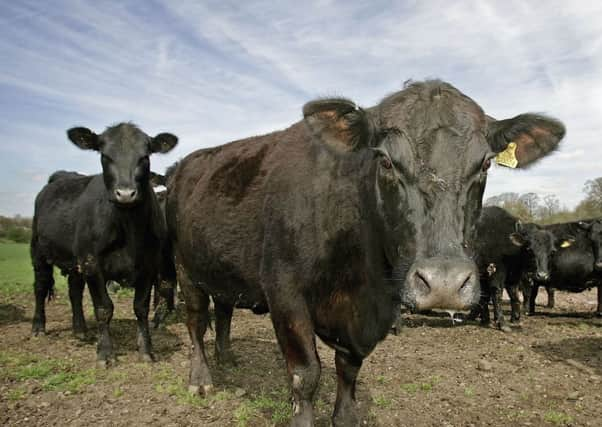Progress in bid to prevent influx of South American beef


Responding to reports from Brussels, Irish Farmers Association newly appointed president, Joe Healy welcomed the removal of some products, in particular beef, from the draft offer on Mercosur – the South American consortium – being considered by EU trade commissioner Cecilia Malmström.
Charlie Adam, the NFU Scotland livestock chairman, said that if the reports had substance, it was really good news for producers in Scotland.
Advertisement
Hide AdAdvertisement
Hide AdIt had been proposed that up to 78,000 additional tonnes of South American produced beef would be allowed to enter the EU under the proposed trade deal.
Healy claimed any negotiating strategy based on concessions on products, including beef, was totally flawed and sacrificed European farmers in the process.
He followed a similar line of argument taken last week by Adam when he was in Brussels and when he claimed there was real concern over the effect a flood of cheap imported beef could have not only in Scotland but right across Europe.
“If this is true, then it is really good news for the whole of the Scotch beef industry.”
Meanwhile, research which was carried out by the French Livestock Institute that looked at the competitiveness of the EU suckler cow sector in the context of the proposed Transatlantic Trade & Investment Partnership (TTIP) between the US and the EU came up with some worrying statistics.
Speaking to report at the Copa/Cogeca beef working group, Jean-Pierre Fleury warned: “On high value cuts such as loin cuts, the US beef sector remains more competitive due to economies of scale, different environmental practices and manure management as well as there being different animal welfare and health standards and a lack of a mandatory traceability system.
“The EU has very high standards in this respect which imports to the EU do not have to meet. Loin cuts nevertheless represent the main source of income for our beef producers. Without a cautious approach in TTIP, this type of production could be badly hit, with a negative impact on the economies of rural regions.
“In my native country France, for example, which has the highest number of suckler cows in the EU, the study confirms a potential drop in incomes of specialised French beef producers of up to 40-50 per cent which would be very damaging especially as they farm in areas where no alternative form of employment exists.”
Advertisement
Hide AdAdvertisement
Hide AdEarlier, Fleury had pointed to beef prices continuing to drop in the EU beef sector while the Russian ban on EU agriculture exports was still in place.
“The dairy sector has been particularly badly affected which is having knock-on effects on the beef sector. Beef production was up 3.6 per cent in 2015 due to the continued pressure on the dairy sector, as producers switch from dairy to beef production. This is resulting in extra supplies on the market.”